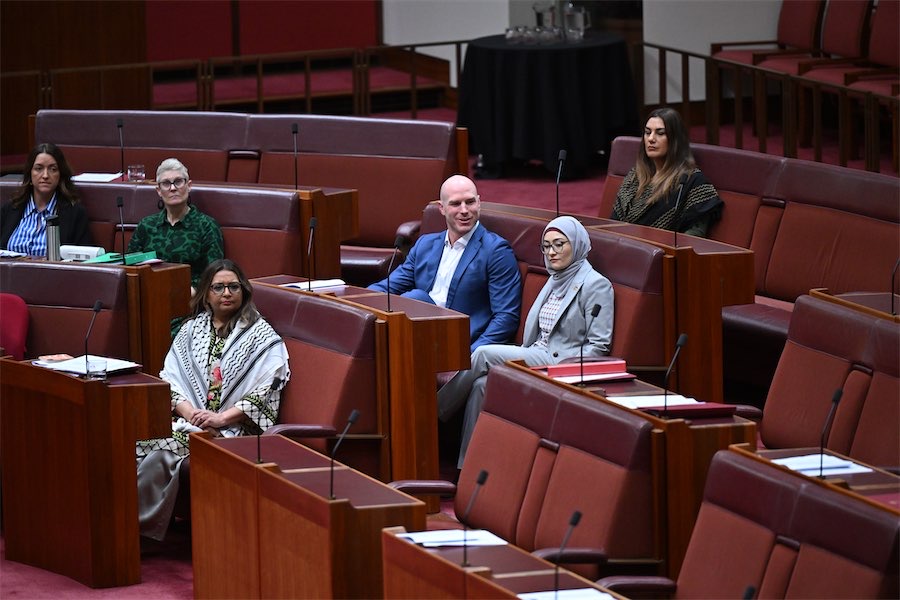
Social justice advocate JANINE HASKINS says the disparity between the rhetoric of AMC’s senior officials and the “reality of what’s actually occurring” is so stark that she’s begun working to establish an expert advisory group.
As a regular visitor to the Alexander Maconochie Centre (AMC) for more than two and a half years, the stories I have heard regarding the insidious treatment of detainees are very compelling.

Further, I have witnessed objectionable treatment of particular detainees during some of my visits.
While the director-general of Justice and Community Safety Directorate, Richard Glenn, appears to have normalised deaths in custody, I see this very differently.
Further, I would be extremely interested to know the statistics of detainees who die soon after their release from the AMC. Considering the lack of rehabilitation, programs, education, health care and human rights compliance, I am confident the numbers would be significant.
The disparity between the rhetoric spouted by the prison’s senior officials and the reality of what is actually occurring in AMC is so stark that I have recently begun working with correctional experts and those with lived experience to establish an advisory group.
Shifting the AMC towards evidence-based practices that serve to protect the community by facilitating reduced recidivism of released prisoners appears to be the appropriate way forward.
It now appears acceptable that a detainee can be refused mental health medication from a decision made by a custodial officer – how does this happen? The implications of this could be catastrophic given the withdrawal effects of ceasing such medication.
Justice Health (JH) is not independent from ACT Corrective Services (ACTCA), it defers to them in all matters. ACTCS determines who gets what medication and when, and JH staff have made it clear to prisoners that ACTCS is the final decision maker in all medical matters.
A great example of this in practice was the recent AMC practice of placing anyone who states they feel unwell in solitary confinement in bare cells with no power or access to any of the “rights” AMC is supposed to protect.
As a result, prisoners who were sick chose not to seek medical assistance.
One prisoner wrote to the acting commissioner of ACTCS about this, advising him that someone would die if this continued.
Within six months, an unwell prisoner died in his yard. How long had he been unwell before his death and did the practice of “punishing” requests for help contribute to his death? I hope that an investigation will uncover the truth of this.
There is no complaints process that is independent from the ACT government. All the agencies stating that they take complaints from prisoners are government agencies that side with Corrections exclusively.
An excellent example of this is the ACT Ombudsman responding to a prisoner complaint about being held in solitary confinement without exercise access.
In the same month that the Supreme Court found this treatment to be a blatant breach of human rights, the ombudsman conversely stated that this was appropriate treatment of prisoners.
The disparity between these positions is a prime example of the standard for dealing with complaints by prisoners. The issue is largely that ACTCS policies have been constructed without human rights being meaningfully considered and all complaints are measured against policy.
If a prisoner is denied access to healthcare, education, exercise, phone calls, visits, food, sunlight, work, or any other right that could be conceivably restricted, their only option is to turn to the Supreme Court for remedy as it is the policies of ACTCS that allow for the human rights abuses that are occurring.
It might be helpful to look at the Healthy Prison Reviews of the AMC by the Office of the Inspector for Correctional Services (OICS).
There have been two whole-of-prison reviews to date. The first one provided a fail grade as a result of the poor conditions and the second noted that conditions have deteriorated since the first! What does this say about the policies and practices of ACTCS?
Mistreating prisoners in the AMC is a risk to security and good order, something correctional experts would be aware of.
Unfortunately, ACTCS seems to have neglected to employ anyone who is appropriately qualified in this field. If they have, evidence of their existence is lacking given the practices that contradict what the evidence tells us is required to achieve positive outcomes.
Were I to ask ACTCS who the correctional expert who guides its policies and practices is, I would likely get the same response I received when asking which human rights expert oversees their policy development – deafening silence.
Janine Haskins is a social justice advocate, advocating on prison reform as well as coronial and mental health issues.
Who can be trusted?
In a world of spin and confusion, there’s never been a more important time to support independent journalism in Canberra.
If you trust our work online and want to enforce the power of independent voices, I invite you to make a small contribution.
Every dollar of support is invested back into our journalism to help keep citynews.com.au strong and free.
Thank you,
Ian Meikle, editor









Leave a Reply